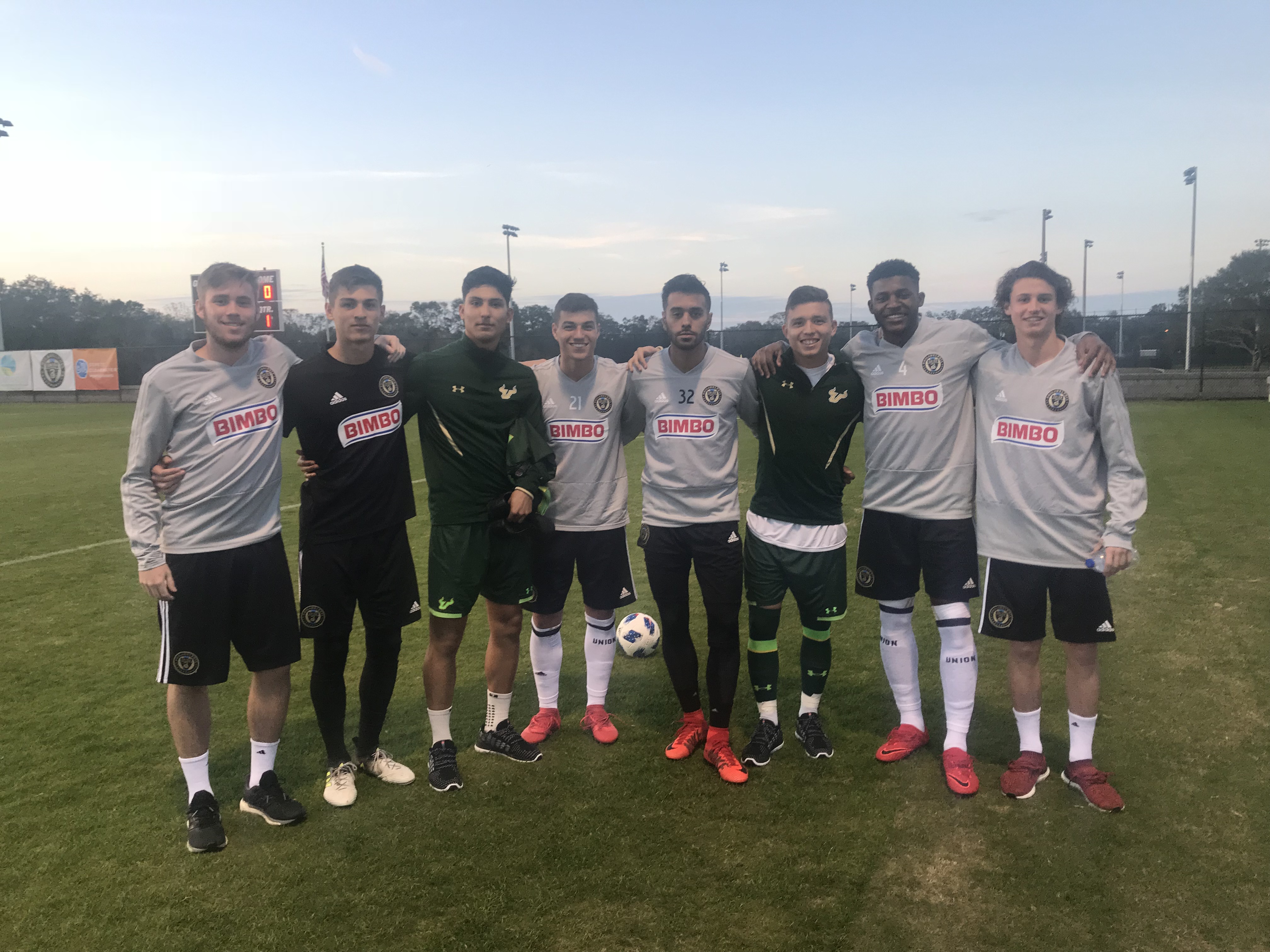Photo courtesy Cristina Fink
What are the immediate UEFA Champions League prospects of the teams Brenden Aaronson and Mark McKenzie have just joined, Red Bull Salzburg and KRC Genk (aka Racing Genk)?
PSP readers are already asking these questions.
UEFA’s system
UEFA uses a system of coefficients to rank a national association’s first division league against all the other first division leagues. As a rough generalization, the coefficients reflect how well a league and the clubs in it have done in Europe over the last five years.
Once you are comfortable with the idea coefficients and the rankings they produce, Wikipedia has a useful chart visualizing the stages and details of the preliminary rounds of qualification that occur before the UEFA Champions League “tournament proper” begins with the group stage. The chart appears below.
“Association” refers to a national association’s first-division league ranking
|
Access list for 2018–19 to 2020–21 UEFA Champions League |
|||
| Teams entering in this round | Teams advancing from the previous round | ||
| Preliminary round (4 teams) |
|
||
| First qualifying round (34 teams) |
|
|
|
| Second qualifying round | Champions Path (20 teams) |
|
|
| League Path (6 teams) |
|
||
| Third qualifying round | Champions Path (12 teams) |
|
|
| League Path (8 teams) |
|
|
|
| Play-off round | Champions Path (8 teams) |
|
|
| League Path (4 teams) |
|
||
| Group stage (32 teams) |
|
|
|
| Knockout phase (16 teams) |
|
||
(Underlining and italics added.)
There is a qualification path for all teams that are national league champions (except Liechtenstein which lacks a national league’s minimum of eight teams having only seven, so it competes in the Swiss league and has no national league champion of its own). The path is called the Champions Path. And there are qualification paths for teams that finish immediately behind the champions if the league’s recent performance in Europe has been good enough. That mechanism is called the League Path.
Salzburg (Aaronson) and Genk (McKenzie)
Austria’s Bundesliga is ranked 10th and Belgium Jupiler League is ranked 9th. For what it is worth Red Bull Salzburg is ranked 22, and KRC Genk is ranked 53, although those rankings do not affect qualification for the UEFA Champions League.
In Belgium (McKenzie) the first four teams from the regular season playoff against each other to determine the league champion and the runner-up. The champion enters the Champions League at the group stage. As the runner -up from association 9, the runner-up enters at the second qualifying round of the preliminary qualifying rounds. The runner-up must win twice in order to join the champion in the group stage.
In Austria (Aaronson) the top six teams from the regular season qualify for the championship round. The winner enters the group stage directly as champion. As the runner -up from association 10, the runner-up enters at the second qualifying round of the preliminary qualifying rounds. The runner-up must win twice in order to join the champion in the group stage.
As of Tuesday January 12, 2021, Salzburg are in first place by one point, and Genk are in second four points behind the leader.
Cultural curiosities
The city of Genk is in the easternmost province of the Flemish Region of Belgium, usually called Flanders in English. McKenzie will be learning to speak Flemish. Salzburg is in western Austria on top of the border with Germany, so Aaronson will be learning to speak German.


Salzburg is still in Europa League this year! Will Aaronson be eligible to play?
For what it’s worth, McKenzie is in the “squad list” of 21 for Genk’s game tomorrow, Saturday January 16. here’s the url to Twitter. Links don’t work in comments boxes. https://twitter.com/KRCGenkofficial/status/1350072222354911232/photo/1
Apologies for the duplicate comment. No idea what I did, but obviously I did it.
.
Anyhow, Ben, in re Aaronson’s eligibility for Red Bulls Salzburg for the rest of the current tournament, here is the relevant UEFA url. https://www.uefa.com/uefachampionsleague/news/024e-0e9960c4c766-21ef2df7ed44-1000–the-rules-january-transfers/
.
I understand it to say that a January transfer — which Aaronson is — can be one of a maximum of three such transfers added to a club’s roster for Europa League play. The addition must be made on or before February 2nd.
.
He could become eligible if the club so chooses. It would depend on how many additions they make in the January window, and who’s ready.
For what it’s worth, McKenzie is in the “squad list” of 21 for Genk’s game tomorrow, Saturday January 16. here’s the url to Twitter. Links don’t work in comments boxes. https://twitter.com/KRCGenkofficial/status/1350072222354911232/photo/1
Here is the UEFA URL for the eligibility of January transfers to play in both the Champions League for the rest of the season and the Europa League.
https://www.uefa.com/uefachampionsleague/news/024e-0e9960c4c766-21ef2df7ed44-1000–the-rules-january-transfers/
.
A club may add up to three such transfers, and must do so by February 2nd.
.
ESPN’s list of all transfers lists Salzburg as only bringing in Aaronson so far, (Noon, Fri., Jan 15th), so at the moment he might become eligible.
McKenzie did not make the game-day squad for Genk. They lost 0-2, going down a man, their central defender in a three-man backline, according to the internet.
.
Genk are represented as playing a 3-4-3 in that match.